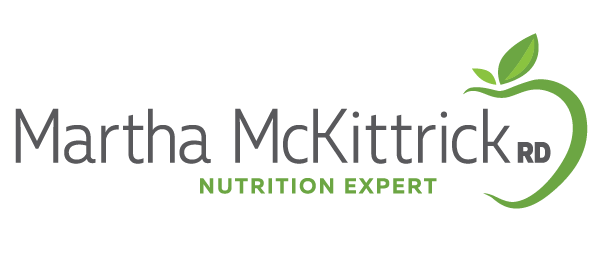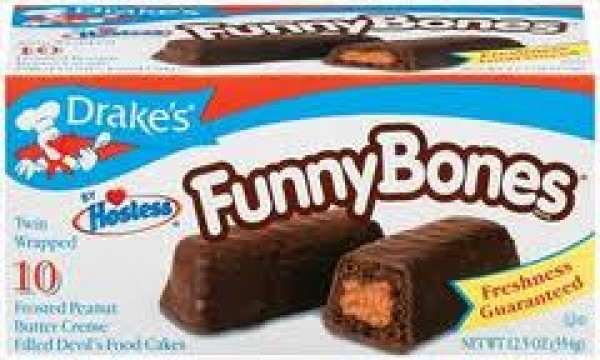Should You Drink Wine for the Health Benefits?
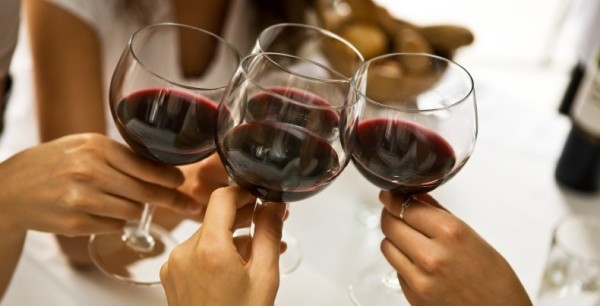
Americans love miracle pills and superfoods. Anything to make us slimmer, stronger, younger and healthier. We’ve all heard about the health benefits of red wine. What could be better than this – something that tastes good is actually good for us! Substances found in red wine have been linked to a decreased risk of heart disease, increased lifespan, decreased risk of chronic disease and possibly weight loss. So should you drink wine for the health benefits? Before you pop that cork, read on to learn the facts on the health benefits of red wine. Post written by guest blogger Renya Franco, RD.
So what’s the deal with the French eating fatty cheese, drinking lots of red wine .. and fitting into those little Chanel suits?? Let me first tell you a few things about wine, in particular red wine. Back in 1991, the term “The French Paradox” was coined given the relationship between high fat diets, wine drinking, and the low occurrences of cardiovascular disease among the French. Since then, scientists discovered the compound resveratrol, an antioxidant found in red wine. Besides testing for its impact on heart disease, scientists have also looked at its impact on cancer, obesity, longevity, and diabetes.
 Is red wine a miracle drink? First of all, many of the studies have been done in a test tube or on rats. Therefore, the results of the studies are preliminary since we are not rats; we are walking, talking humans. But it is very interesting to evaluate the results of these studies and give some thought to what we put into our body and how it might impact our wellness. Here are some answers to a few questions that we have about resveratrol and red wine. So …
Is red wine a miracle drink? First of all, many of the studies have been done in a test tube or on rats. Therefore, the results of the studies are preliminary since we are not rats; we are walking, talking humans. But it is very interesting to evaluate the results of these studies and give some thought to what we put into our body and how it might impact our wellness. Here are some answers to a few questions that we have about resveratrol and red wine. So …
Should you drink wine for the health benefits?
- Does resveratrol increase our lifespan? Several studies described resveratrol as an anti-aging compound. Based on a review of studies focusing on resveratrol, red wine, heart disease and longevity, it appears that resveratrol can induce the expression of several longevity genes and prevent aging-related decline in cardiovascular function including cholesterol level and inflammatory response in mice. BUT does not affect their actual survival rate or life span. More studies are needed to determine whether red wine or resveratrol will help us live longer.

- Will drinking red wine help me lose weight? The short answer is no. You may have read that resveratrol helps with oxidation of fat cells. But these studies are only on mice that were fed a high fat diet and the mice did not lose weight. In fact, a recent study on non-obese postmenopausal women with normal glucose tolerance showed resveratrol did not have any beneficial metabolic effects. (Vicki pic credit)
- Does wine reduce the risk of chronic diseases such as diabetes, heart disease and cancer? Studies have found that moderate drinking of alcoholic beverages is associated with reductions of heart disease. But the mechanism is not entirely determined. It could be the antioxidant, anti-inflammatory and possibly anti-atherogenic properties in
 resveratrol and/or flavonoids in red wine. Or it could be the alcohol in the drink, or the socioeconomic differences of people who drink red wine. More studies are necessary to determine why there are these associations.
resveratrol and/or flavonoids in red wine. Or it could be the alcohol in the drink, or the socioeconomic differences of people who drink red wine. More studies are necessary to determine why there are these associations.
The studies on resveratrol and cancer are mixed. Resveratrol blocks the growth of a variety of cancer cells, including those from breast, prostate, stomach, pancreatic, and thyroid cancers. In animal studies, resveratrol blocked the growth of esophageal, intestinal, and breast cancer that was brought upon by chemical carcinogens. But it didn’t block the development of lung cancer brought upon by smoking. Mice studies on colon cancer and resveratrol have been inconclusive. And the amount of resveratrol needed to reduce the risks of cancer and other chronic diseases is unknown. (mouse pic credit)
In rat studies, resveratrol has been found to have anti-diabetic effects including hypoglycemic and lipid (fat) lowering properties. In human clinical trials, resveratrol has lowered blood sugar levels.
- How much wine should I drink to possibly reduce the risk of chronic diseases? You would need to drink several liters of red wine to get sufficient resveratrol to achieve
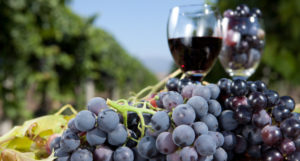 these benefits. But drinking one glass a day overtime might do the same. A glass of wine is 5 ounces. Women may have 1 serving of wine each day while men are allowed to have 2 servings of wine each day. But watch out for those NYC restaurant pours.
these benefits. But drinking one glass a day overtime might do the same. A glass of wine is 5 ounces. Women may have 1 serving of wine each day while men are allowed to have 2 servings of wine each day. But watch out for those NYC restaurant pours. - I don’t drink alcohol. How else can I get resveratrol? Foods that have resveratrol include grapes, grape juice, peanuts, mulberries, blueberries, dark chocolate and cocoa. Here is a chart that provides the amount of resveratrol in foods and wine:
| Total Resveratrol Content of Wines and Grape Juice | ||
| Beverage | Total resveratrol (mg/liter) | Total resveratrol in a 5-oz glass (mg) |
| White wines (Spanish) | 0.05-1.80 | 0.01-0.27 |
| Rosé wines (Spanish) | 0.43-3.52 | 0.06-0.53 |
| Red wines (Spanish) | 1.92-12.59 | 0.29-1.89 |
| Red wines (global) | 1.98-7.13 | 0.30-1.07 |
| Red grape juice (Spanish) | 1.14-8.69 | 0.17-1.30 |
| Total Resveratrol Content of Selected Foods | ||
| Food | Serving | Total resveratrol (mg) |
| Peanuts (raw) | 1 cup (146 g) | 0.01-0.26 |
| Peanuts (boiled) | 1 cup (180 g) | 0.32-1.28 |
| Peanut butter | 1 cup (258 g) | 0.04-0.13 |
| Red grapes | 1 cup (160 g) | 0.24-1.25 |
6. Should I take a supplement? I generally don’t recommend taking supplements. Why? Supplements are not regulated by the Food and Drug Administration, their efficacy is unproven, and their purity and safety aren’t assured. I encourage everyone to get their health boosters (antioxidants, anti-inflammatories) from food. Although resveratrol does not cause any adverse effects, that is based on very few scientific studies, most of which were done on rates. It is unknown whether resveratrol supplements are safe for pregnant and lactating women. And alcohol consumption during pregnancy is not recommended. Resveratrol has estrogenic properties, so those with a history of estrogen-sensitive cancers, such as breast, ovarian, and uterine cancers, should avoid resveratrol supplements.

The bottom line:
Enjoy a glass (or two if you are a man) of red wine with your meal, relax and think about all the healthy things you do for your body. If you aren’t a wine drinker, you can get your resveratrol from other foods. Don’t feel the need to start drinking to get potential health benefits. And if you are watching your weight, keep mind that calories add up quickly!
I’d like to thank my colleague (and fellow cyclist!) Renya Franco for writing this blog post. Reyna is a New York City based registered dietitian-nutritionist, a board certified specialist in sports dietetics and a personal trainer. She can be contacted at reyna@reynafranco.com. Visit her website
RELATED POSTS
MEET MARTHA
I especially love problem-solving, whether it’s helping women defeat issues plaguing them for years, helping a busy executive find practical ways to get heart healthy, or providing tips to help you reverse diabetes. That’s why I’m on a constant quest to expand my knowledge by staying on top of the latest research.
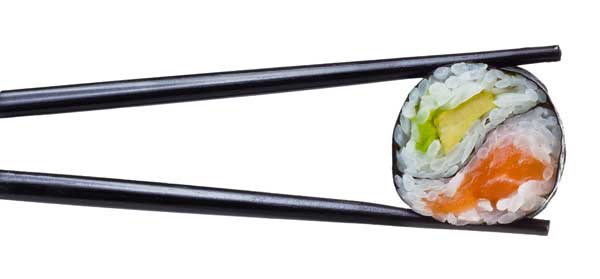
20 Ways To Eat Out 550 Calories or Less!
No time to cook? We’ve got you covered. Here are 20 healthy meals from a variety of cuisines that won’t pack on the pounds. Most of them also have less than 30 grams of carbs.
Subscribe to my newsletter and get this free download.
